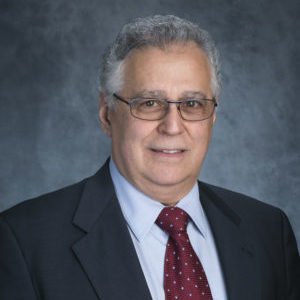Survey Findings Are a Call to Action for Physicians
April 7, 2020
By Gregory Schimizzi, MD

Biologic medications were introduced into the United States in 1982 and biosimilar medications in 2015. These are infused or injected medications that have revolutionized the treatment of many diseases. Years later, however, patients still have questions about biologics, and especially about biosimilars.
What is the source of patient confusion? A new survey indicates that patients need more information especially about biosimilars, which are the follow-on biologics that could offer cost savings for everyone.
Many of the more than 130 respondents in the online survey simply didn’t have a good grasp on the topic. About four in 10 answered “Don’t Know” when asked whether the regulatory pathway would encourage price competition, spur more biosimilars or inspire patient confidence in biosimilars. Maybe that’s fair; the average patient may not have the time or desire to understand how the FDA approves biosimilars. However, half of respondents reported that patients didn’t even know that biosimilar options exist, and more than half said that patients do not understand interchangeability or the distinction between biologics and biosimilars.
There was a bright spot, however. Among those who did feel informed enough to register an opinion, positive views of the biosimilars pathway outnumbered negative by two to one.
As a physician, I interpret this message as a hopeful one. With the right information and education, patients can grow in their confidence and awareness of the full range of biological treatment options, both innovators and biosimilars. Survey respondents did indicate an openness to new information. Roughly two-thirds of patients said they’d like to know about the benefits and risks of biosimilars, for what diseases specific biosimilars are approved and how they compared in clinical trials. More than half of the respondents want to know if patients tolerated and responded to the biosimilars.
As physicians, we are up to the task of educating our patients. In the clinic where I practice, for example, we have pamphlets and handouts available. In each exam room, an AV screen educates patients as they wait. We have well trained nurses and staff that can educate patients too. And, of course, all health care providers have the opportunity to weave the basics of biologics into their conversations with patients about treatment options.
Another challenge underscored by the survey, however, is harder to address.
While respondents indicated that they are eager for cost savings, they also made clear that they wanted treatment decisions to remain between patients and physicians. A full 68% reported feeling “nervous about switching from their current treatment option,” and more than half said they would feel “resentful” if the switch were driven by an insurance company.
They are afraid of non-medical switching.
I remember a colleague’s patient with rheumatoid arthritis who was stable and well on one specific biologic. Then one day a letter from her insurance company came in the mail, informing her that her co-pay would soon increase dramatically and urging her to ask her physician to prescribe a different medication. The letter triggered an appeals process that dragged on but came, ultimately, to no resolution. The patient’s medication was switched, risking her hard-won stability because her insurance company insisted.
But wait. Two years later, that same patient received a very similar letter from her same insurance company. Her co-pay was about to increase dramatically for this new biologic. The letter advised that her physician switch medications again. She wound up switching back to the very same medication prescribed two years earlier.
This is an outrageous scenario. It might even be laughable if not for the fact that the practice of non-medical switching endangers patients and undermines the shared decision-making process they undertake with their health care provider.
Patients are looking for answers, as the survey shows us, about all biologics and their role in treating patients’ complex and debilitating diseases. We can provide those answers.
But patients also want reassurance that the heavy hand of health plans doesn’t creep into medical decisions that impact their lives. Physicians and patients need to push back, again and again, and to speak out until policymakers make the changes necessary to protect patient-centered care.
Gregory Schimizzi, MD, is a board-certified rheumatologist and co-convener of the Biologics Prescribers Collaborative.
Categorized in: Blog

